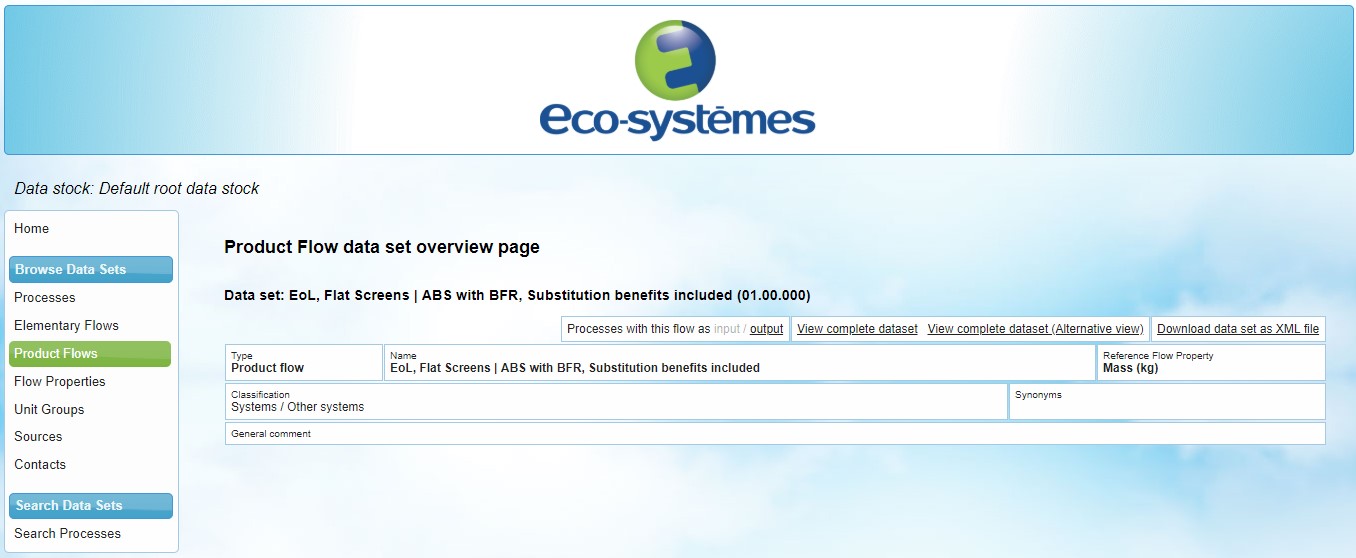Everything you need to know about the assistance provided to ESR producer members in 2018.


214,519,330 €
eco-fees paid in 2018

1,200,139
tonnes marketed in 2018

2,096
member producers in 2018
78.1%
ESR's market share
21.9%
Other WEEE take-back schemes
|
Categories
|
Market shares
|
|
|
|
|---|---|
| Cat. 1 : Large Household Appliances | 87.45% |
| Cat. 2 : Small Household Appliances | 73.87% |
| Cat. 3 : IT and Telecommunications Equipment | 24.10% |
| Cat. 4 : Consumer goods | 76.27% |
| Cat. 6 : Electrical and electronic tools (with the exception of large scale stationary industrial tools) | 67.23% |
| Cat. 7 : Toy, Leisure and Sports Equipment | 56.86% |
| Cat. 8 : dispositifs médicaux | 71.32% |
| Cat. 9 : Medical Devices (non significant data) | 73.73% |
| Cat. 10 : Monitoring ans Surveillance Instruments | 0% |
70%
Operational costs:
management and control of transport, decontamination and recycling operations. R&D investment.
5%
Operating costs:
salaries and organisational costs.
3%
Information:
waste prevention and incentive to recycle campaigns.
22%
Support:
financial compensation given to local authorities, stores and solidarity networks in exchange for their contribution to collection.
In accordance with its obligations in the specifications document for authority approval, ESR checks more than 15% of the tonnages declared by its producer members. This independent audit enables to check that information provided in the declarations has been correctly recorded, as well as its compliance with the reference information provided by ESR, based on the fee scale and guide documents. It also allows any errors observed in the reporting to be identified and measured.
Any sticking points, misunderstandings or points requiring further clarification to improve reporting quality are given special attention as are producer best practices. The understanding and the application of the reference information in the 25 companies audited (accounting for 17% of tonnages) were audited in regards to the declarations of equipment introduced onto the market in 2017 and 2016.
At the end of an each audit, each member enjoys a personalised debriefing session in order to better understand and implement the reporting methods and corrections. It has been possible to correct a few errors, such as the application of the eco-fee scale and correct equipment weights. Amongst the 25 companies audited in 2018, 15 have a level considered as being good or satisfactory compared to 11 companies in 2017.

Launched three years ago by ESR, the only European database evaluating the environmental impact of electrical and electronic equipment at the end of their service life, was finished in 2018. 86 materials have now been modelled and rolled out according to the different streams treated to enable manufacturers to quantify the environmental impacts and benefits of their design choices during the recycling of their equipment.
Created to incite, facilitate and encourage eco-design, information provided to manufactures enables them to measure the environmental impacts of the end-of-service life of their electrical equipment according to its composition. Eco-designing electrical equipment is reflected, for example, by the development of appliances that can be more easily recycled or by using recycled materials. Acting effectively in the choice of materials according to their end-of-service life impact is now possible thanks to the database, made freely available to all stakeholders in the sector by ESR.
Accessible to producers, the database is particularly aimed at Life Cycle Analysis (LCA) software users. By integrating new data into these tools, the end-of-service life of appliances can be quickly, reliably and representatively modelled. This data has been integrated into widely known life cycle analyses software, such as EIME, SimaPro, etc.
To guarantee good representativeness of this data, Eco-systèmes and Récylum have modelled the end-of-service lie processes for all equipment at more than 50 WEEE decontamination and treatment sites as well as for fifteen recovery or disposal processes. The database is now even more exhaustive than before because it alone has 950 Life Cycle Inventories (LCI) that can be downloaded via the European platform “Life Cycle Data Network” (LCDN), developed by the Joint Research Centre (JRC), the European Commission’s research centre.
Data on small household electrical appliances, large cooling appliances (refrigeration, air conditioning) and non-cooling household appliances (washing, cooking, heating) and flat can be accessed by all on http://weee-lci.eco-systemes.com
ESR continues to raise awareness and assists its producers in the recyclability of their products by taking into account the “end-of-service life” challenges during the design stage of their new appliances as well as the integration recycled plastics (8 projects in 2018).
In addition to direct meetings with producer members, ESR also participated in the following events:
ESR is co-steering works on two future European standards. The 1st focuses on evaluating an appliance’s recyclability and potential recovery. By monitoring this standard ESR is able to ensure that its REEECYC’LAB tool, made available to producers, is methodologically aligned. The 2nd focuses on evaluating the recycled materials content of appliances. These works started in 2015 by the European Standardisation Committee and should be completed by 2020. Several producer members and ESR partner operators are also involved in establishing these standards.
Furthermore, ESR is also monitoring a European standard which is currently being developed, the purpose of which is to set common rules on using life cycle analyses, enabling, in fine, environmental reporting declarations to be completed for equipment.
Since 15 August 2018, 4 new types of equipment have been integrated into the WEEE sector: luminaires, printer cartridges, electricity generators and electrical apparatus. Since the beginning of 2018, ESR has initiated working groups with equipment producers who were in the process of integrating “open scope”. Thanks to the producers’ involvement and to active co-construction, the equipment included in the sector or excluded from it was effectively defined, the fee-scales set and the members quickly informed about these new aspects.
Taking into consideration the specificities of each type of equipment and how each sector works, is a priority for ESR which adapts itself to the challenges and requirements of all stakeholders. The successful integration of the new equipment covered by “open space” is proof that the assistance provided to stakeholders and the consultation of all stakeholders are key in guaranteeing a quality service such as that of the WEEE sector.
In this respect, ESR actively works with the FEVAD – a professional organisation representing those in the electronics trade – in order to raise awareness of members on the importance being in compliance with the WEEE sector’s obligations. Today, hosting sites are not accountable for the shortfalls of commercial sites in market places in regards to complying with regulations. Discussions and work at a European level should change this situation as from 2020, the date at which hosting sites will take on this responsibility. It is ESR’s responsibility to prepare this transition as from now.
ESR is also going to meet e-sale managers in order to help marketplace contacts to correctly reference the information on eco-fees and the take back of appliances. ESR is also working with international chambers of commerce in order to increase awareness in French regulatory requirements. Lastly, regular “free-riders” prospecting campaigns are undertaken in order to identify non-compliant sites and raise their awareness.